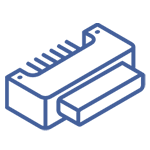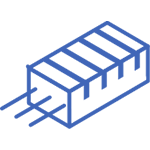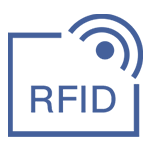

Amphenol ICC (FCI) 10046971-007LF
Manufacturer No:
10046971-007LF
Tiny WHSLManufacturer:
Utmel No:
143-10046971-007LF
Package:
-
Description:
10046971-007LF datasheet pdf and Card Edge Connectors - Edgeboard Connectors product details from Amphenol ICC (FCI) stock available at Utmel
Quantity:
Unit Price: $10.533753
Ext Price: $10.53
Delivery:





Payment:











In Stock : 47
Minimum: 1 Multiples: 1
Qty
Unit Price
Ext Price
1
$10.533753
$10.53
10
$9.937503
$99.38
100
$9.375003
$937.50
500
$8.844342
$4,422.17
1000
$8.343719
$8,343.72
Want a lower wholesale price? Please send RFQ, we will respond immediately.
RFQ Now
Add to RFQ list
You may place an order without registering to Utmel.
We strongly suggest you sign in before purchasing as you can track your order in real time.
For your convenience, we accept multiple payment methods in USD, including PayPal, Credit Card, and wire transfer.
RFQ (Request for Quotations)It is recommended to request for quotations to get the latest prices and inventories about the part.
Our sales will reply to your request by email within 24 hours.
1. You'll receive an order information email in your inbox. (Please remember to check the spam folder if you didn't hear from us).
2. Since inventories and prices may fluctuate to some extent, the sales manager is going to reconfirm the order and let you know if there are any updates.
- TypeParameter
- Factory Lead Time8 Weeks
- Contact Plating
Contact plating (finish) provides corrosion protection for base metals and optimizes the mechanical and electrical properties of the contact interfaces.
Gold - Mount
In electronic components, the term "Mount" typically refers to the method or process of physically attaching or fixing a component onto a circuit board or other electronic device. This can involve soldering, adhesive bonding, or other techniques to secure the component in place. The mounting process is crucial for ensuring proper electrical connections and mechanical stability within the electronic system. Different components may have specific mounting requirements based on their size, shape, and function, and manufacturers provide guidelines for proper mounting procedures to ensure optimal performance and reliability of the electronic device.
Through Hole - Mounting Type
The "Mounting Type" in electronic components refers to the method used to attach or connect a component to a circuit board or other substrate, such as through-hole, surface-mount, or panel mount.
Through Hole - Housing Material
The parameter "Housing Material" in electronic components refers to the material used to encase or protect the internal circuitry of the component. The housing material plays a crucial role in providing physical protection, insulation, and environmental resistance to the electronic component. Common housing materials include plastics, metals, ceramics, and composites, each offering different levels of durability, heat resistance, and electrical properties. The choice of housing material is important in determining the overall performance, reliability, and longevity of the electronic component in various operating conditions.
Thermoplastic - Material - Insulation
Material - Insulation is a parameter that refers to the type of material used to provide insulation in electronic components. Insulation is crucial in electronic devices to prevent electrical current from flowing where it is not intended to go, thus avoiding short circuits and other potential hazards. The material used for insulation can vary depending on the specific requirements of the component, such as temperature resistance, dielectric strength, and environmental factors. Common insulation materials include plastics, ceramics, and various types of coatings designed to provide reliable and effective insulation in electronic components.
Thermoplastic - Contact MaterialsCopper Alloy
- Operating Temperature
The operating temperature is the range of ambient temperature within which a power supply, or any other electrical equipment, operate in. This ranges from a minimum operating temperature, to a peak or maximum operating temperature, outside which, the power supply may fail.
-5°C~105°C - Packaging
Semiconductor package is a carrier / shell used to contain and cover one or more semiconductor components or integrated circuits. The material of the shell can be metal, plastic, glass or ceramic.
Tray - Series
In electronic components, the "Series" refers to a group of products that share similar characteristics, designs, or functionalities, often produced by the same manufacturer. These components within a series typically have common specifications but may vary in terms of voltage, power, or packaging to meet different application needs. The series name helps identify and differentiate between various product lines within a manufacturer's catalog.
Power Edge - Part Status
Parts can have many statuses as they progress through the configuration, analysis, review, and approval stages.
Active - Moisture Sensitivity Level (MSL)
Moisture Sensitivity Level (MSL) is a standardized rating that indicates the susceptibility of electronic components, particularly semiconductors, to moisture-induced damage during storage and the soldering process, defining the allowable exposure time to ambient conditions before they require special handling or baking to prevent failures
1 (Unlimited) - Termination
Termination in electronic components refers to the practice of matching the impedance of a circuit to prevent signal reflections and ensure maximum power transfer. It involves the use of resistors or other components at the end of transmission lines or connections. Proper termination is crucial in high-frequency applications to maintain signal integrity and reduce noise.
Kinked Pin, Solder - Connector Type
Connector Type in electronic components refers to the specific design and configuration of the connector used to establish electrical connections between different devices or components. This parameter describes the physical shape, size, and layout of the connector, as well as the number and arrangement of pins or contacts. Common connector types include USB, HDMI, RJ45, and D-sub connectors, each serving different purposes and applications. Understanding the connector type is crucial for ensuring compatibility and proper functionality when connecting electronic devices together.
Cantilever - Number of Positions62 (Power)
- Max Operating Temperature
The Maximum Operating Temperature is the maximum body temperature at which the thermistor is designed to operate for extended periods of time with acceptable stability of its electrical characteristics.
105°C - Min Operating Temperature
The "Min Operating Temperature" parameter in electronic components refers to the lowest temperature at which the component is designed to operate effectively and reliably. This parameter is crucial for ensuring the proper functioning and longevity of the component, as operating below this temperature may lead to performance issues or even damage. Manufacturers specify the minimum operating temperature to provide guidance to users on the environmental conditions in which the component can safely operate. It is important to adhere to this parameter to prevent malfunctions and ensure the overall reliability of the electronic system.
-5°C - ColorBlack
- Number of Rows2
- Gender
In the context of electronic components, the parameter "Gender" typically refers to the physical characteristics of connectors or interfaces that determine how they can be mated together. Connectors are often designed with specific gender types, such as male or female, to ensure proper alignment and connection between devices. A male connector typically has protruding pins or plugs that fit into a corresponding female connector, which has receptacles or sockets to receive the pins. This design helps prevent incorrect connections and ensures a secure and reliable electrical connection. Understanding the gender of connectors is crucial when designing or assembling electronic systems to ensure compatibility and proper functionality. It is essential to match the gender of connectors correctly to avoid damage and ensure optimal performance of the electronic components.
Female - Contact Type
Contact Type in electronic components refers to the specific design and configuration of the electrical contacts used to establish connections between components or devices. The contact type determines how the electrical signals are transmitted between the components, and it can vary based on factors such as the application requirements, signal type, and environmental conditions. Common contact types include pin contacts, socket contacts, surface mount contacts, and wire-to-board contacts. Understanding the contact type is crucial for ensuring proper connectivity and reliable performance in electronic systems.
Cantilever - Pitch
In electronic components, "Pitch" refers to the distance between the center of one pin or lead to the center of the adjacent pin or lead on a component, such as an integrated circuit (IC) or a connector. It is a crucial parameter as it determines the spacing and alignment of the pins or leads on a component, which in turn affects how the component can be mounted on a circuit board or connected to other components.The pitch measurement is typically expressed in millimeters (mm) or inches (in) and plays a significant role in determining the overall size and layout of a circuit board. Components with different pitches may require specific types of circuit boards or connectors to ensure proper alignment and connection. Designers must carefully consider the pitch of components when designing circuit layouts to ensure compatibility and proper functionality of the electronic system.
0.100 2.54mm - Orientation
In electronic components, the parameter "Orientation" refers to the specific alignment or positioning of the component with respect to its intended installation or operation. This parameter is crucial for ensuring proper functionality and performance of the component within a circuit or system. Orientation may include factors such as the physical orientation of the component on a circuit board, the direction of current flow through the component, or the alignment of specific features or terminals for correct connection. Manufacturers often provide orientation guidelines in datasheets or technical specifications to help users correctly install and use the component. Paying attention to the orientation of electronic components is essential to prevent errors, ensure reliability, and optimize the overall performance of electronic devices.
Straight - Current Rating
Current rating is the maximum current that a fuse will carry for an indefinite period without too much deterioration of the fuse element.
7A - Contact Finish
Contact finish refers to the surface coating or treatment applied to the electrical contacts of electronic components. This finish is crucial for ensuring reliable electrical connections and preventing corrosion or oxidation of the contacts. Common contact finishes include gold, silver, tin, and nickel, each offering different levels of conductivity, durability, and resistance to environmental factors. The choice of contact finish depends on the specific application requirements, such as operating conditions, cost considerations, and compatibility with other components in the circuit. Selecting the appropriate contact finish is essential for maintaining the performance and longevity of electronic devices.
Gold - Voltage - Rated AC
Voltage - Rated AC is a parameter that specifies the maximum alternating current (AC) voltage that an electronic component can safely handle without being damaged. This rating is crucial for ensuring the proper functioning and longevity of the component within an electrical circuit. It is typically expressed in volts (V) and helps users determine the compatibility of the component with the voltage levels present in the circuit. Exceeding the rated AC voltage can lead to overheating, malfunction, or permanent damage to the component, so it is important to adhere to this specification when designing or using electronic systems.
1kV - Number of Contacts62
- Housing Color
Housing color in electronic components refers to the color of the protective casing or enclosure that surrounds the component. It can play a role in visual identification, aiding in easy recognition during assembly or maintenance. Additionally, the housing color may also have implications for heat dissipation, aesthetic considerations, or regulatory compliance depending on the application or industry standards.
Black - Card Type
In the context of electronic components, the parameter "Card Type" typically refers to the physical form factor or shape of the component. It describes the specific design and layout of the component, which can vary depending on its intended use and compatibility with other components or systems. For example, common card types in electronics include PCI cards, SIM cards, and memory cards, each designed for specific functions and applications. Understanding the card type is important for ensuring proper installation, compatibility, and functionality within an electronic system.
Non Specified - Dual Edge - Read Out
the process of removing information from an automatic device (such as a computer or sensor) and displaying it in an understandable form.
Dual - Insulation Resistance
The measurement of insulation resistance is carried out by means of a megohmmeter – high resistance range ohmmeter. A general rule-of-thumb is 10 Megohm or more.
5GOhm - Number of Positions/Bay/Row31
- Max Voltage Rating (AC)
The parameter "Max Voltage Rating (AC)" in electronic components refers to the maximum alternating current (AC) voltage that the component can safely handle without being damaged. This rating is important for ensuring the component's longevity and reliability in a circuit. Exceeding the maximum voltage rating can lead to overheating, breakdown, or even permanent damage to the component. It is crucial to select components with voltage ratings that are suitable for the intended application to prevent malfunctions or safety hazards in the circuit.
1kV - Contact Finish Thickness
Contact Finish Thickness refers to the measurement of the layer of conductive material applied to the surfaces of electrical contacts in electronic components. This thickness is critical as it influences the electrical conductivity, solderability, wear resistance, and overall performance of the connection. The materials used for the contact finish can include gold, silver, or other metals, and the specified thickness is designed to ensure reliable operation over the component's lifespan.
30.0μin 0.76μm - Card Thickness
Card Thickness in electronic components refers to the measurement of the thickness of a printed circuit board (PCB) or a card used in electronic devices. It is an important parameter as it determines the overall size and form factor of the electronic component. The card thickness can vary depending on the specific requirements of the device and the components it houses. It is typically measured in millimeters or mils (1 mil = 0.001 inches) and is a critical consideration in the design and manufacturing of electronic products to ensure proper fit and functionality.
0.062 1.57mm - Radiation Hardening
Radiation hardening is the process of making electronic components and circuits resistant to damage or malfunction caused by high levels of ionizing radiation, especially for environments in outer space (especially beyond the low Earth orbit), around nuclear reactors and particle accelerators, or during nuclear accidents or nuclear warfare.
No - RoHS Status
RoHS means “Restriction of Certain Hazardous Substances” in the “Hazardous Substances Directive” in electrical and electronic equipment.
RoHS Compliant
![10061913-102CLF]()
10061913-102CLF
Amphenol ICC (FCI)![10018783-10200TLF]()
10018783-10200TLF
Amphenol ICC (FCI)![SATA01100571]()
SATA01100571
AMPHENOL FCI ASIA PTE LTD![10018784-10002TLF]()
10018784-10002TLF
Amphenol ICC (FCI)![MDT320M02001]()
MDT320M02001
Amphenol ICC (Commercial Products)![10035388-102LF]()
10035388-102LF
Amphenol ICC (FCI)![10133085-103LF]()
10133085-103LF
AMPHENOL FCI ASIA PTE LTD![M85049/118S16W]()
M85049/118S16W
Amphenol Pcd![10018784-10200TLF]()
10018784-10200TLF
Amphenol ICC (FCI)![10053363-200LF]()
10053363-200LF
Amphenol ICC (FCI)





















